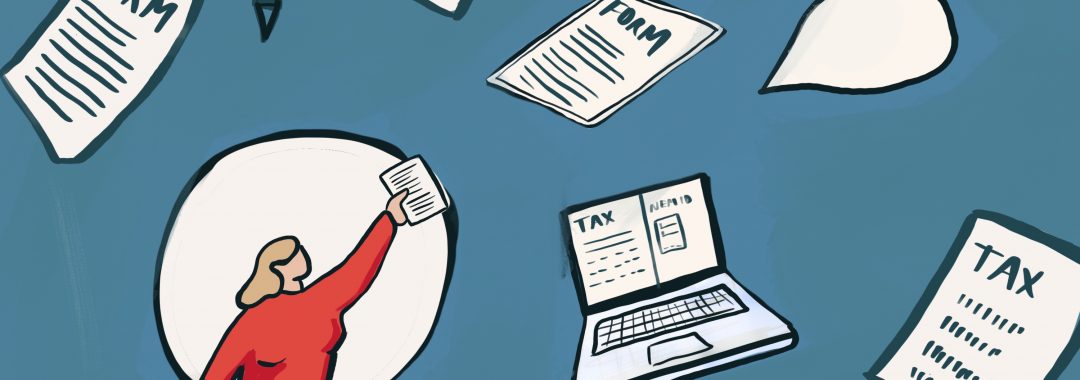At a library in Copenhagen, community-supported access to welfare[1] is in plain sight. All citizens living in Denmark should have access to welfare services, yet many citizens struggle to access welfare benefits through state mandated apps and websites.
Every Tuesday and Thursday, a library hosts Information Technology (IT) support sessions of two hours for people who need help in applying for welfare benefits.
A woman in her sixties with bright blue eyes arrives at the reading hall. She greets the staff knowingly.
“I need to apply for financial aid again, to pay the heating,” she says.
A group of volunteers are prepared to help in the reading area. The room is large and bright, with many windows and overflowing bookshelves. Those providing IT support are volunteers: a retired doctor, a retired IT professional, and a retired schoolteacher. Yet they are supported by library staff who also supports citizens when volunteers are in doubt about regulation. One of the volunteers sits beside the lady, opens a laptop, ask for consent to see her information, and together they spend half an hour opening her Gmail and the state mandated app Digital Post. Slowly they find her login card and search for her passwords written on a small notebook. Finally, the woman types, key by key, her personal information into an online form while struggling to read the information on the screen. It takes approximately forty minutes for them to apply for financial aid.
I approach her while the volunteer is browsing information about the application.
“Yes! It is done!” She says smiling.
“Do you always come here to get help?
“Yes! as a pensioner I can apply for financial aid to pay my heating bill, but I have to come here. Now I need to buy a smartphone. I can’t remember which brand. I don’t want to, but I have to, because everything is on the computer and the log-in physical card will no longer be valid”.
“And when you need help and you can’t come to the library, who helps you?”
“My daughter helps me. Especially during the lockdown, but even before that. She helps me when she is at work, or with her children. Ever since it became mandatory for us to use the computer, she has helped me. I send her a message, or I call her, and she helps. She has two children, a snake and a dog, but she still has time to help me send letters to the authorities.”
The library volunteers are responsible for ensuring that citizens can apply for welfare benefits and succeed in the process from start to end. They are responsible for treating citizens’ personal data responsibly, attending to questions, browsing online guidelines, calling the authorities on behalf of citizens, providing emotional support, and keeping citizens’ information and passwords safe during and after each administrative task on a public laptop. In some cases, library staff and volunteers teach citizens workarounds when the apps and websites don’t work.
What is noticeable here is how the state disempowers citizens struggling to access and use digital technologies through its mandated digital welfare provision while relying upon others to respond to this disempowerment (volunteers and relatives) through their own sense of community care. Digital welfare services become a mediation point, then, for processes of disempowerment and care [2], as informal helpers find ways to repair and maintain citizens’ equal access to welfare.
Author: Barbara Nino Carreras
[1] Lizzie Coles-Kemp et al., “Digital Welfare: Designing for More Nuanced Forms of Access,” Policy Design and Practice 3, no. 2 (April 2, 2020): 177–88, https://doi.org/10.1080/25741292.2020.1760414. [2] Joan Tronto, Moral Boundaries: A Political Argument for an Ethic of Care (New York: Routledge, 1993).
